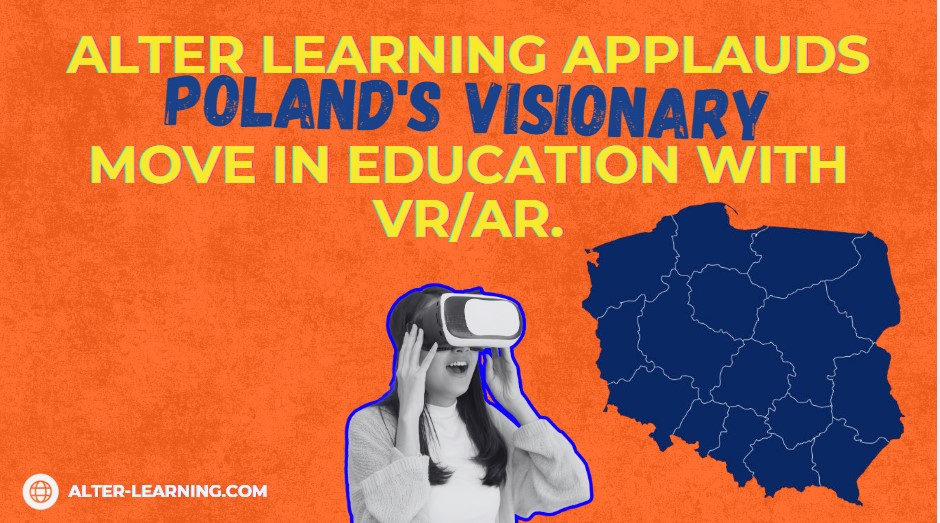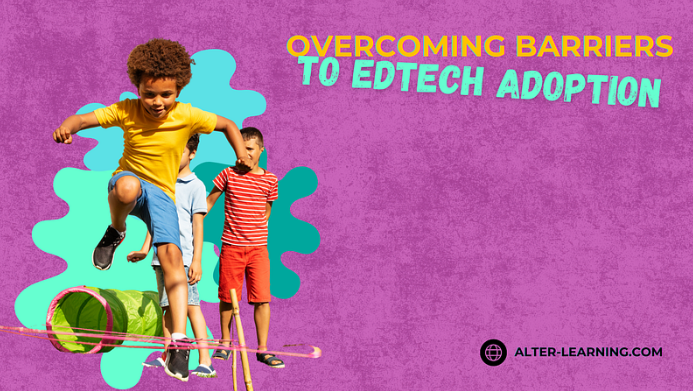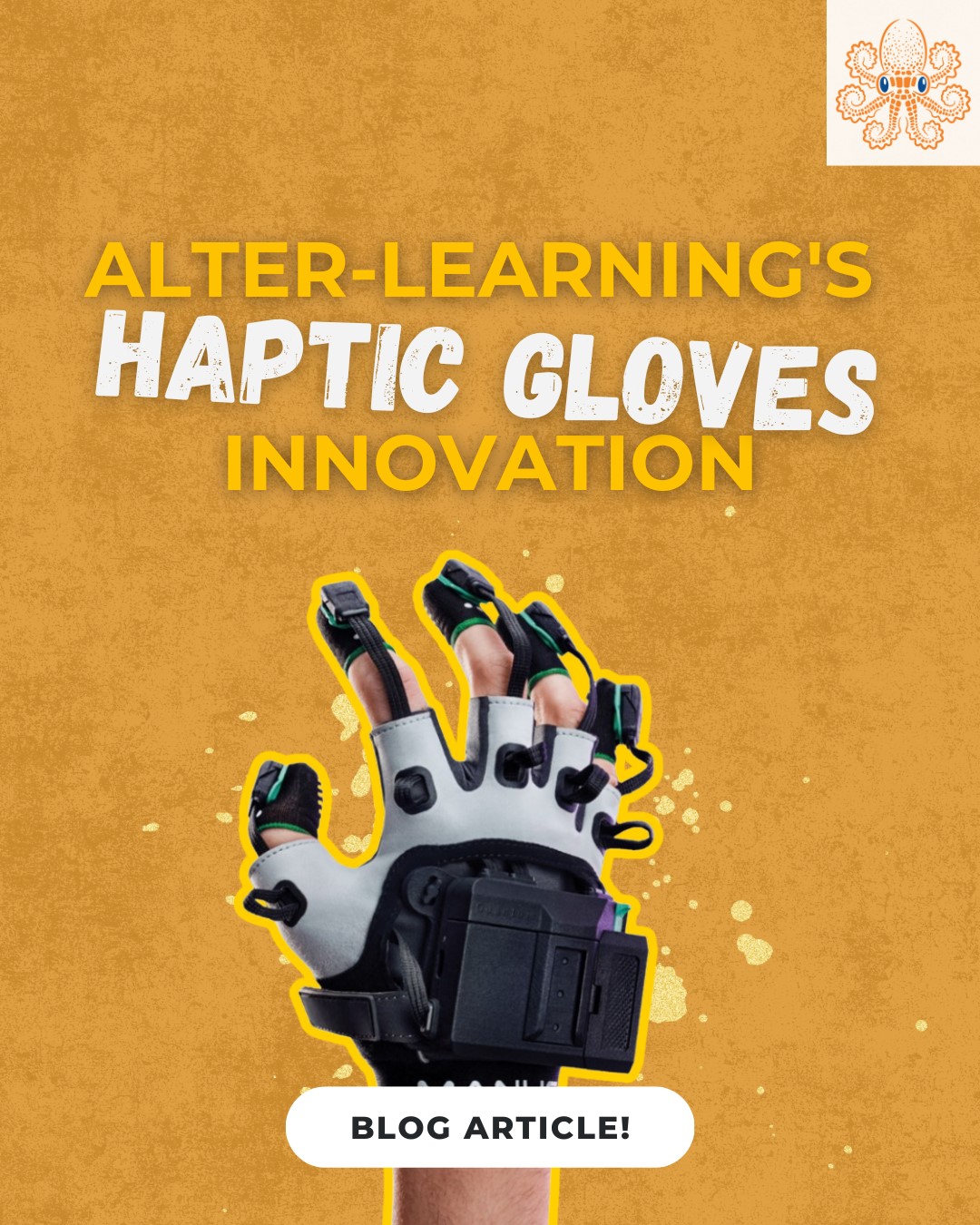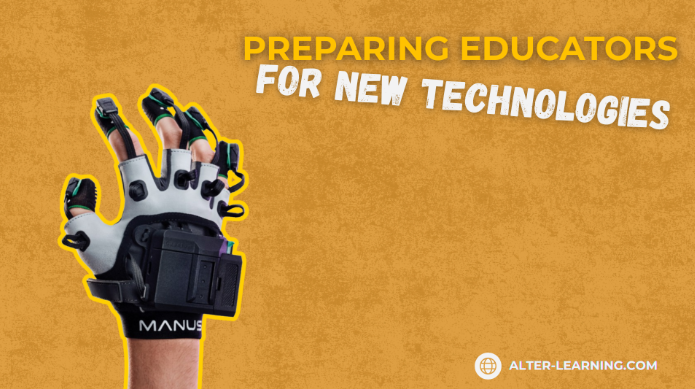How immersive technology is reshaping teacher training and classrooms internationally
Poland, under the leadership of the Polish Ministry of Education, is emerging as a global leader in integrating virtual and augmented reality (VR/AR) into education. The Ministry, recognizing the potential of these technologies to enhance teaching and learning, partnered with tech companies to offer extensive, free VR/AR training workshops for educators in over 500 schools nationwide.
At Alter-Learning, we’re always on the lookout for bold, transformative examples of immersive education in action—and Poland has become one of the most exciting success stories in the world.
Instead of settling for minor updates to their school system, Poland’s Ministry of Education has demonstrated remarkable courage by embracing the future with one of the most comprehensive VR/AR teacher training initiatives globally.
The goal? Equip thousands of educators with the tools and confidence to bring virtual and augmented reality into everyday classrooms.
From Pilot to Powerhouse: A Nationwide Vision for VR/AR in Classrooms
The Polish VR/AR initiative, which officially launched in September 2020, began in major cities and has since expanded rapidly, partnering with tech companies and equipping state-of-the-art training labs.
And teachers showed up.
Thousands of educators—many of whom received training during evenings and weekends—received practical instruction in immersive tools, curriculum integration, and classroom safety. It’s one of the most robust national VR/AR programs in the world, and it’s producing real results.
VR/AR in Action: What Teachers Are Doing
At Alter-Learning, we believe in showing—not just telling—how immersive learning can reshape education. Here’s what teachers in Poland are now implementing:
- Biology classes where students “travel” through the human digestive system
- History reenactments inside virtual ancient cities
- Language immersion experiences in virtual Paris or Berlin
- Math and physics visualizations in interactive 3D space
- Art creation using VR sculpting tools
These experiences aren’t just exciting—they’re helping students understand and retain information better.
Pandemic-Proof Educationmerging Benefits of VR/AR in Education
When COVID-19 disrupted classrooms around the globe, Poland’s VR/AR initiative became even more valuable.
Teachers already trained in immersive tools were able to transition to engaging, remote-friendly lessons. Virtual labs replaced in-person experiments. Shared VR spaces enabled group collaboration even from home.Just as importantly, VR/AR helped address accessibility gaps, giving students in rural areas or with disabilities a more inclusive learning experience. For instance, students with mobility issues were able to virtually visit historical sites or participate in virtual field trips. At the same time, individuals with visual impairments can interact with 3D models to gain a deeper understanding of complex concepts.
The Numbers Speak for Themselves
According to the Polish Ministry of Education, 92% of trained teachers are now actively using VR/AR in their classrooms.
That’s nearly universal adoption, within just a year of launch, demonstrating the profound impact of the initiative.
The impact?
- Increased student engagement
- Improved academic performance
- A deeper understanding of complex concepts
- Greater collaboration and curiosity
At Alter-Learning, we view these metrics as proof of what’s possible when immersive tech meets thoughtful training and support.
Multi-Subject Integration: The Real Power of Immersion
Polish educators are applying VR/AR across all subject areas:
- Mathematics: Visualizing geometry, data, and abstract problem-solving
- Science: Exploring ecosystems, chemical reactions, and anatomy in 3D
- Language Learning: Practicing conversation in culturally rich virtual spaces
- Art and Design: Creating virtual galleries, sculpting in VR, and designing architecture
- Career Readiness: Simulating job interviews and real-world work environments
From 500 schools to nearly 3,000 installations in under two years, Poland’s scaling strategy is thoughtful, rapid, and strategic. It involves careful planning to ensure that resources are distributed equitably, rapid deployment to meet the growing demand, and strategic partnerships with tech companies to keep the initiative cost-effective and sustainable.
Building the Pedagogy of the Future
At Alter-Learning, we are inspired by how Poland is not just deploying hardware—it is also cultivating a new teaching pedagogy built around immersive technology.
Teachers are co-developing lesson plans, refining goals, and conducting research on how to use VR/AR best to foster:
- Critical thinking
- Student agency
- Problem-solving through simulation
- Inquiry-based learning
Support networks, resource libraries, and continuous training ensure this isn’t a one-time rollout—it’s an evolving educational culture. Teachers are encouraged to share their experiences, best practices, and challenges with one another. The Ministry of Education regularly updates its training programs and resources to keep pace with the latest developments in VR/AR education.
Why This Matters Globally
Poland’s initiative is more than national policy—it’s a global signal.
A signal that isn’t just possible—it’s scalable, impactful, and inclusive.At Alter-Learning, we see this as an inspiration for other countries, schools, and educators. By investing in teacher empowerment and long-term training, Poland has shown that VR/AR in education is far more than a tech trend—it’s a transformative tool for 21st-century learning.
Final Thoughts from Alter-Learning
We believe stories like Poland’s must be shared—not only to celebrate success, but to spark innovation elsewhere.
When done right, immersive learning looks like this: a clear vision, bold investment, teacher-led transformation, and measurable impact.
Poland is leading by example. Now, it’s time for the rest of us to catch up.
Follow Alter-Learning for more insights into immersive education, edtech success stories, and the future of learning. Want to explore how VR/AR could transform your school or learning platform? Let’s connect.
Follow us on Social Media!
https://www.youtube.com/@alter-learning
https://www.linkedin.com/company/alterlearning
https://www.instagram.com/alterlearning_/
https://www.facebook.com/alterlearningvr




